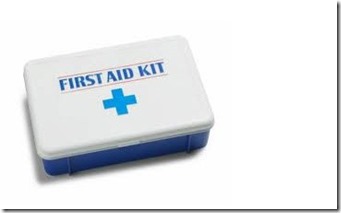Opening a restaurant in this day and age can be more stressful than many people realise, but that doesn’t mean you should avoid doing it. The traps that many restaurateurs fall into can be avoided through fairly simple means, and avoidance is the best way to aim for success, rather than falling into them and working hard to get out. In this article, we have put together 7 tips for turning your restaurant into the talk of the town, in the hopes that it helps you reach your business goals in a timely fashion.
Menu
The menu you offer up to your customers is the first interaction of any substance that they have with your business. Plenty of times their first actual interaction will be walking past on opening day, or peering through the window when you’re closed. However, those impressions fall by the wayside once they’ve tasted your food. Your food quality is of the utmost importance, so if your decoration has to be a little more sparse to allow the budget for mind-blowing food, so be it. You’ve probably heard your friends say “this place looks a little weird but the food is amazing” more times than you’ve heard “the food here sucks but I keep coming back because it looks cool”.
Theme
Having a theme for your restaurant doesn’t have to be as cheesy as many, many 80’s restaurants made it out to be. When people think “themed restaurant”, their mind usually jumps to a medieval-themed eatery where screaming children run rampant and an air of lawlessness permeates the loose idea that this is a restaurant. This is, obviously, not what you’re going to be aiming for when it comes to your theme. A subtle theme can mean the difference between a well known restaurant and a must-visit destination for travellers, so find what theme works for you and subtly introduce it.
Pricing
Pricing is tricky, because people will assume cheaper food is, well, cheaper food. The more expensive you go, the higher quality your whole restaurant experience has to be, and therefore the more you charge the more you have to spend. Calibrate your costs with what restaurants you want to align yours with in terms of price bracket and you’ll find a more steady stream of customers.
Service
Service is highly important, because you don’t want your wait staff to take plates away the second your customers are finished eating, but you also don’t want them to leave the dishes on the table to languish in the after-dinner conversation. There are plenty of fine places to get hospitality supplies in Melbourne, so there shouldn’t be any reason you can’t provide guests with extra cutlery if they need it. Prompt service is always good, so steer clear of slow chefs and lengthy prep times for anything other than the special dish of the evening/week/month, because a special is always worth waiting for.
Dietary Options
Allowing your guests to choose between an omnivorous, a vegetarian, and a vegan option is standard in the modern day and age, so ensure you have these options, but don’t forget to include gluten free for coeliacs and a fructose free option for the unfortunate souls that can rarely eat anything on any menu for fear of the garlic and onion in every choice. This difference will set you apart from your similarly-priced competition, and leave you victorious.
Social Media
Every restaurant worth a visit has its own social media pages, and acting otherwise only works when that’s the point of your restaurant. If you’re running a place that has a ban on phones, for instance, no social media will align with your branding and be kitsch and cool. However, any other kind of place needs to have an Instagram, and a Facebook at the very least.
Location
Finally, your location will set you apart. Far from the city center but offering exotic and well-made foods will struggle, as will the same setup in the city center due to competition. Find the “golden suburb” that has a median income that works with your pricing and is known to be cool, or at least a little quirky, and you’re well on your way to being an underground hotspot.
These tips will help you secure yourself a spot on the list of every trend setter in your city, so get to planning your menu and training your staff to prepare for the opening night of a lifetime.








